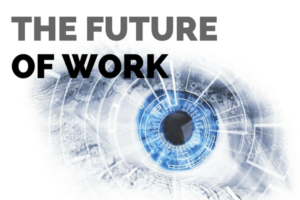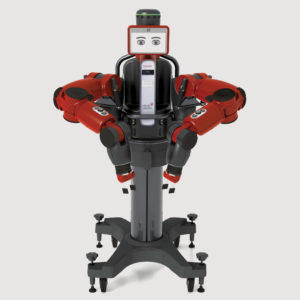 Modern industrial machines are capable of performing tough tasks we wouldn’t be able to accomplish manually otherwise. In many ways, machines are more efficient, productive, the outcome of their activity is more precise and accurate. Further more, the nature of work itself is being transformed. Robots are continuously migrating into all industrial fields. What are industrial machines of the future like and how their integration will transform the future of industry?
Modern industrial machines are capable of performing tough tasks we wouldn’t be able to accomplish manually otherwise. In many ways, machines are more efficient, productive, the outcome of their activity is more precise and accurate. Further more, the nature of work itself is being transformed. Robots are continuously migrating into all industrial fields. What are industrial machines of the future like and how their integration will transform the future of industry?
The Future of Work
As you are reading this article, industry is undergoing a major global transformation. Transformation so deep and significant, it received the name of the Future of Work. Industrial Internet represents one of the major forces shaping the industrial transformation. Cloud-based analytics solutions are being widely integrated into industrial machinery causing a significant leap in productivity and efficiency. The costs of electronic sensors are rapidly decreasing as well as the cost of data processing, which allows to get huge volumes of data from machines. The data is then analyzed to create insights which will eventually lead to an increase of production capacity. The generated information is so intelligent it enables to instantly fix issues before they even occur. Needless to say, this feature represents a great opportunity for downtime elimination and costs reduction.
Industrial Machines of the Future
Some economists believe the impact of the Future of Work phenomenon will overcome the transformative power of the Industrial Revolution. The transformation is already happening, and while it will still require a certain deal of investments and adaptation, humanity will soon be able to enjoy the technological perks on a new level. More and more industrial machines are newly equipped with electronic sensors allowing them to see, hear and interact with each other. Continuous development of Artificial Intelligence (AI) enables machines to learn and gain information the way humans do so.
 Industrial Robots Working with Humans
Industrial Robots Working with Humans
One of the few mind-blowing examples is called Baxter from Rethink Robotics. Baxter belongs to a new class of industrial robots created to work alongside with humans. It can look around which is a revolutionary feature determining the fact Baxter can be working by the side of other workers. Previous models of robots could not see humans, hence there was an undesirable risk of injury. Another, most important feature is that Baxter can be trained. To train Baxter you can simply guide its arms in the correct sequence of motions. Baxter can learn the routine and then repeat it on its own. In the past, it required thousands of lines of a new code to be written in order to introduce a new skill to a robot. Industrial robot that is capable of learning is an undeniable break-through in the field of industrial machines of the future.
Industry Transformation
Speaking of industries, which could most benefit from the Future of Work transformation, automotive industry is one of the clear winners. Equipped with mechanical arms, electronic sensors, wheels and tools, industrial robots are ideal candidates for assembly line jobs. What’s more, use of robots reduces manufacturing costs and at the same time increases efficiency. Robots perform complicated tasks in a more precise manner, they are also faster than any human. Another strong point robots posses is they can be engaged into high-risk production processes. Despite assembling, automotive robots can perform jobs like welding or painting.
Robots vs. Humans
Reading about all invaluable qualities and improvements robots can bring into production process, one can not help but wonder: are robots eventually going to replace humans? Are we going to lose our jobs to industrial machines of the future? The answer is most probably yes, but it’s not that simple. Remember the waves of automation in the past decades? Jobs that were done by humans, for instance in farming industry, are nowadays done by machines. However, the workers didn’t lose their jobs for nothing. Industrial revolution brought new occupations we couldn’t even imagine only decades ago. Jobs of repairmen, service workers, technicians, operators are all based on previous automation. True, some of the traditional jobs have been eliminated to be replaced by brand new job roles. Numerous studies prove that technology has been creating jobs instead of destroying them. Modern age requires a great deal of adaptability, yet there is hope for a bright future of humanity alongside industrial machines.



